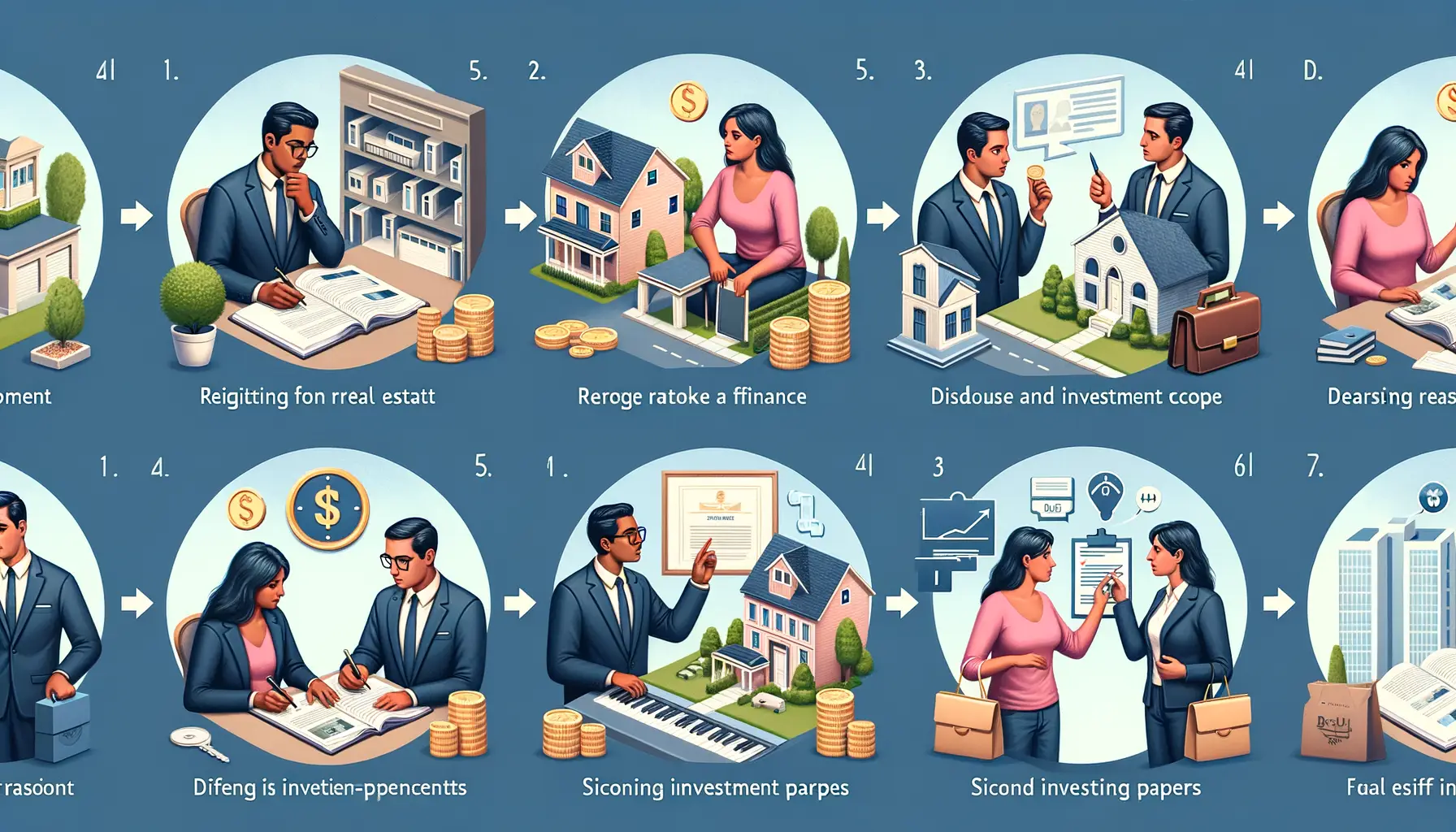Real Estate Investing for Passive Income
Understanding Real Estate as a Passive Income Source
Why Real Estate Feels Like “Money That Works While You Sleep”
Imagine waking up in the morning, brewing your coffee, and realizing that while you were sound asleep, your property was busy earning you money. Sounds dreamy, right? That’s the magic of real estate as a passive income source—it’s like putting your dollars into their own 9-to-5 job but without the hustle of micromanagement.
When you invest wisely in real estate, you’re creating long-term income streams. Think about renting out a cozy apartment in a bustling city or owning a commercial space where businesses thrive. These properties work tirelessly to generate cash flow while giving you the bandwidth to explore other passions in life.
Passive income isn’t just about the money; it’s about freedom. The freedom to leave the grind behind and focus on what matters most to you.
- Rental properties: Monthly cash rolling in, often enough to cover expenses and more.
- Real estate crowdfunding: A modern, hands-off method—investing without lifting a hammer!
So whether you choose to get hands-on or let professionals handle things, real estate holds the key to financial independence like few other investments can.
Types of Real Estate Investments for Passive Income

Exploring Income-Generating Real Estate Options
Imagine waking up on a quiet Sunday, savoring your coffee with the comforting knowledge that your money is working for you while you sleep. Sounds like a dream, right? It doesn’t have to be, especially when you dive into the diverse world of real estate investments designed specifically to bring in passive income.
The beauty of real estate lies in its versatility. You’ve got options to suit every personality and financial goal. Consider these possibilities:
- Rental Properties: From cozy single-family homes to multi-unit apartment complexes, owning rental properties lets you earn monthly income while building equity. Picture the satisfaction of a tenant’s rent hitting your account each month!
- REITs (Real Estate Investment Trusts): Want the benefits of real estate without the hassle of fixing leaky faucets? REITs let you invest in portfolios of properties and collect dividends, no physical property ownership needed.
- Vacation Rentals: Think charming beach houses or trendy city lofts on platforms like Airbnb. These properties can yield higher returns, especially during peak travel seasons.
Less Conventional But Lucrative Avenues
Let’s venture beyond the beaten path. Have you considered investing in commercial real estate? Picture bustling office spaces or retail buildings buzzing with tenant activity. Alternatively, land investments — from farmland to undeveloped lots — can be a goldmine if you play your cards right. It might take longer to see returns, but when they come, they often hit big!
No matter your choice, one thing’s certain: real estate offers a wealth of opportunities to create a life where your income feels as steady as the sunrise. What could be more empowering than that?
Steps to Start Investing in Real Estate

Lay the Foundation: Educate Yourself First
Before jumping into the deep end, think of real estate investing like building a house. The foundation is knowledge. Take time to research the basics: What is cash flow? What’s an ROI? How does location impact property value? Read books, binge-watch YouTube guides, or take an online course to strengthen your base. The stronger your understanding, the less likely you’ll crack under pressure when challenges arise.
Pro tip: Start small. Explore rental properties or REITs (Real Estate Investment Trusts) before eyeing that luxury apartment complex across town.
Action Steps to Kickstart Your Journey
When the pieces start clicking, it’s time to jump into action! Here’s how you can get started:
- Set a budget: How much are you willing to invest? Get clear on your finances to avoid emotional decisions later.
- Research markets: The key? Emerging areas! Look for neighborhoods with growing job opportunities or upcoming developments.
- Build your team: No investor is an island. Connect with property managers, real estate agents, and even contractors who know their stuff.
- Dive in: Whether it’s a rental unit or crowdfunding platform, take that first step with confidence. You’ve worked for this moment!
Pros and Cons of Real Estate Investing for Passive Income

The Upsides That Make Real Estate Shine
Investing in real estate for passive income is like planting a tree that keeps bearing fruit year after year. It’s no wonder this strategy makes people feel excited about their financial futures. Here’s why it’s worth the hype:
- Predictable Cash Flow: Owning rental properties gives you regular, reliable income like clockwork—think monthly rent checks rolling in to cover life’s expenses or even reinvesting for bigger ventures.
- Appreciation Over Time: Unlike some fleeting investments, real estate often ages like fine wine—gaining value over the years while you barely lift a finger.
- Tax Benefits You’ll Love: Depreciation, deductions, and tax write-offs? It’s like having a little secret bonus from owning property. Many investors use these perks to stretch their dollars further.
The Flip Side: Challenges Worth Knowing
But let’s not pretend real estate is all sunshine and roses. There are a few thorns here, too. Imagine buying a rental home, only to face unexpected repair bills. Or worse, a tenant who ghosts you on rent payments. These hiccups can test your patience.
Here’s where things can get tricky:
- High Initial Costs: Down payments, closing fees, and maintenance don’t come cheap. You’ll need to have savings upfront—and losing a deal to a cash buyer happens more often than you’d expect.
- Market Risks: Markets can be unpredictable, just like the weather. A once-lucrative neighborhood might lose its charm, and poof—your property values dip.
- Time Commitment: While it’s called “passive” income, managing tenants and upkeep can sometimes feel less like sipping martinis on a beach and more like running a part-time job.
Every dollar earned in real estate carries its own adventure, risks, and rewards. It’s all about knowing what you’re signing up for!
Tips and Strategies for Successful Real Estate Passive Income

Master the Art of Picking the Right Properties
Imagine you’re planting a garden—you wouldn’t just scatter seeds and hope for the best, right? The same rule applies to real estate. Choosing the right property is where the magic begins. Start with areas showing growth potential—think bustling cities, towns with improving infrastructure, or neighborhoods everyone’s buzzing about. Scout properties that are near schools, public transportation, or popular amenities.
Here’s a pro tip: focus on cash flow. A flashy property in a trendy location may sound appealing, but if it’s not generating consistent income after expenses, it’s not your golden goose. Always run the numbers—rental yields, vacancy rates, maintenance costs—and trust your calculator!
- Think small first—single-family homes or duplexes often strike the right balance of manageable and profitable.
- Look for rental demand indicators like low vacancies or high population growth in nearby areas.
Let the Experts Do the Heavy Lifting
Passive income doesn’t mean doing it all yourself—you’re not a superhero (even though building wealth *does* feel heroic). Delegate! Invest in property management services to handle tenant screening, maintenance calls, and rent collection.
Picture this: you’re lounging with a book on a beach somewhere while your manager deals with a leaky faucet back home. That’s the essence of passive income! Yes, they take a small cut, but the peace of mind and saved time are worth their weight in gold.
Be sure to vet these pros carefully—ask about fees, reputation, and availability. A strong team means smooth sailing for your investments.
